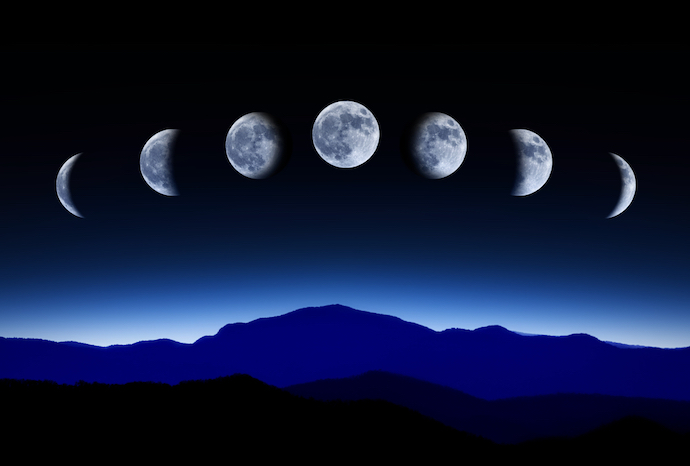Ever since becoming an atheist many years ago, I’ve discarded most everything having to do with Islam. I don’t perform the daily prayers, I don’t attend my local mosque, and I don’t believe that God exists. In my view, the Qur’an is no more inerrant than any other book, the prophet Muhammad isn’t a moral paragon, to say the least, and I’ve disavowed the standard articles of faith, or aqeedah—everything from the existence of angels to the fact of the afterlife. I’ve gone so far as to reject the very idea of religion as a way of life, in fact.
So total has the destruction of my faith been that I’ve managed to sanitize even my everyday speech of supernatural terms—preferring to not invoke God or his emissaries even once, lest I dilute my atheism one iota. But despite the fact that I’ve ostensibly cast aside the mantle of religion once and for all, I continue to fast for the holy month of Ramadan—or Ramzan, as South Asians tend to call it—which concludes this year on the 23rd or 24th of May, depending on the moon.
This year is a return to form for me as I took a hiatus from Ramadan for several years. I’d fasted more or less regularly ever since I was an adolescent, following September 11th when I first became religious. Every year I would join hundreds of millions of Muslims worldwide as I abstained from food, water, and sex from dawn to dusk during what is the ninth month of the Muslim calendar, in which it’s said the angel Gabriel or Jibra’il first began to reveal the Qur’an piecemeal to the prophet Muhammad over 1400 years ago.
As a young believer, I was drawn to Ramadan for reasons of asceticism—the fact that the believer denies their basic needs and desires for a whole month running, all in the name of self-control or mastery. I’ve resumed fasting in a world under quarantine, as Muslims and atheists are beleaguered both: Saudi warplanes continue to bomb Yemeni children with tactical support from the U.S.; the Chinese government has put Uighur Muslims in concentration camps; and fellow atheists like Mubarak Bala are being persecuted in Nigeria.
In the years since I lost my faith, I’ve developed my own personal and largely private practice of fasting, invisible to believers and nonbelievers, both of whom just assume that I’ve abandoned it just as I’ve abandoned belief. In fact, fasting is the one thing I’ve retained from my prior life as a believer, and gone so far as to “do” or “practice” in one sense of the term ever since. It’s never occurred to me to stop fasting, even though I’ve stopped most everything else that characterized my life as a believer.
Not only have I fasted more or less every Ramadan since becoming an atheist, but I’ve also fasted in the off-season, as it were, periodically turning to the practice as a means of absolution or mindfulness—much to the consternation, again, of Muslims and atheists alike. Why would I continue to fast, despite having disavowed not just Islam, but religion altogether, a long time ago? The implication is that, because I admittedly don’t believe in God, I have no reason to fast, and I should have discarded the practice with everything else the minute I became an atheist.
Of course, I do have a reason to fast—it just has nothing to do with God. Fasting is—or, rather, can be—a means of self-control or mastery, especially for someone like me, who in recent years has explored meditation as a means of mindfulness in his everyday life. By repeatedly applying some of the same techniques over the course of my day, I become increasingly mindful of what I’m thinking and feeling—a heightened state of awareness in which I can observe the various contents of my mind vying for attention from a more impartial and contemplative perspective—not unlike the good shepherd gazing out at his flock from a rocky precipice.
The upshot is a more deliberative attitude with respect to not just my thoughts and feelings, but my actions as well. Consciously choosing to act, rather than going through the motions in an automatic or semi-conscious way, enhances my sense of agency—a prophylactic to what may be called ghaflah, or “heedlessness,” as it’s referred to in the Qur’an.
So understood, fasting may very well do for me what it does for the believer. According to verse 2:183 of the Qur’an, “fasting is prescribed to you, as it was prescribed to those before you, that you may learn taqwa”—“taqwa” being variously translated as “God-consciousness” or “self-restraint.” The implication is that, were the believer to become conscious of God—the fact that he’s given us certain instructions to follow, is capable of monitoring our performance, and has attached various consequences to different levels of compliance—the believer would immediately bring their conduct in conformity with God’s will.
In fact, taqwa was compared by Muhammad’s followers in the early days of Islam to walking through a path of thorns, and being careful not to get hurt—or arouse God’s ire. The idea of fasting as a means of mindfulness is also reflected in Muslim tradition. According to the prophet, fasting is a “shield” against sin—hence the common refrain that the believer breaks their fast if they lose their patience, or says an unkind word to someone.
Despite the obvious parallels, I do practice a modified version of the fast. Precisely because the goal is to achieve a certain mindset, it’s largely inessential when I begin the fast, whether before dawn or not—even though, for the most part, I do continue to wake up before dawn to eat a meal as is customary. There’s also nothing stopping me from momentarily suspending my fast in order to take any medication in the morning if I have to, or even to break my fast early should I have important business, or if it would be inconvenient for me to break my fast at sunset.
In other words, I have no obligation to follow the rules that have been laid down by generations past, because I don’t have an obligation to fast, period. I fast because it resonates with me personally, not because I have to. Finally, if the prospect of fasting leaves me cold on a given day, or if I suspect that I’ve failed to prepare myself mentally the day prior and it’s unlikely that I’ll benefit a great deal from fasting, then I don’t fast. Fasting as a moral exercise is a waste of time for me if there’s no will—not unlike physical exercise. But once I’ve made a decision to fast, I take it seriously, with all the rigor of a believer.
The fact that I’ve excised fasting of its traditional religious content, in order to isolate what I see as the moral value of a basic Muslim practice, is an instance of my general attitude toward religion: even if I’ve long since shed it as a way of life, I can retain aspects of it that remain meaningful to me personally. So understood, my atheism is a critical, not destructive, philosophy: I need not reject religion wholesale, or commit it to the flames, if I can adapt it to my own purposes.





